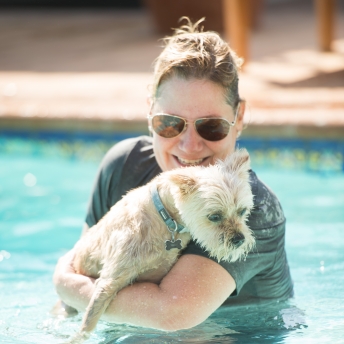There are many ways to approach dog training such as online webinars, workshops, in-person group classes, dog-only enrichment classes, day training programs and private sessions. Each offers a different set of benefits. Here is why day training may be right for you.
Consistent Training
Consistency is key in dog training. In day training, your dog works with an experienced and professional dog trainer one-on-one. This ensures your dog receives consistent training throughout the program. Consistency helps your dog learn and retain new behaviors more quickly and effectively. It also minimizes confusion and mixed messages that can occur with inconsistent training at home.
Time-Saving
You don’t have to worry about finding time in your busy schedule to train your dog. The dog trainer can train your dog during the day, allowing you to focus on other responsibilities or activities. This can be especially beneficial for busy families, working professionals, or anyone with limited time for training.
Customized Training Plans
Day training programs can be tailored to meet the specific needs and goals of your dog . The trainer will assess your dog’s behavior and temperament against your training objectives to create a customized training plan. This personalized approach ensures that your dog receives training that is appropriate and effective for them, maximizing their progress and success.
Socialization Opportunities
There are many opportunities for socialization with other dogs and people over the 3-hour session. This helps your dog develop appropriate social skills, become more confident, and learn how to interact with different types of dogs and people in a controlled and supervised environment.
Transferable Skills
The dog trainer focuses on teaching your dog foundation skills that are transferable to real-life situations. This includes behaviors such as loose leash walking as well as the core commands listed above. These skills can be utilized in various settings, making your dog a well-behaved companion in different situations, including at home, in public, and during outings.
Pet Parent Education
All of our day training programs include educational components such as homework and a wrap up session so you can reinforce training at home. This ensures that you are equipped with the knowledge and skills to continue the training and maintain the desired behaviors once your dog returns home.
Meet with a dog trainer to see if Day Training is right for you.
